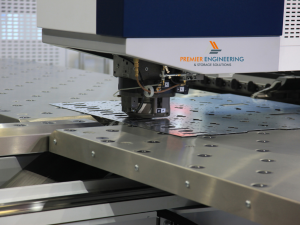The concept of traceability is crucial in butchery, particularly when it comes to organic meat. Consumers today are increasingly conscious of the journey their food takes from farm to table and want assurance that the products they purchase align with their ethical and health values. With a rising focus on sourcing organic and sustainably produced meats, an Organic Butcher Sydney is not just selling high-quality products; they are selling a promise of transparency and integrity.
A butcher’s ability to trace organic meat directly from the farm ensures that consumers can be confident in the safety, quality, and ethical standards of the product. By offering comprehensive traceability, a Butcher Sydney helps customers understand precisely where their meat comes from, building trust and providing peace of mind. Here’s how butchery practices ensure that this traceability is maintained.
Traceability Systems and Standards in Organic Butchery
What Traceability Standards Are Followed by Organic Butchers in Sydney
Organic butchers in Sydney follow strict standards that are often part of larger organic certification programs. These standards require detailed record-keeping and proper labelling to ensure that every cut of meat can be traced back to its source. For instance, the Australian Certified Organic (ACO) and National Association for Sustainable Agriculture Australia (NASAA) are two key organisations setting the guidelines for organic certification. Compliance with these standards involves tracking the animal’s lifecycle, diet, and any interventions made throughout its rearing.
In addition to organic certification programs, butchers must also adhere to mandatory record-keeping and labelling requirements imposed by local health departments. These records help verify that each stage of production meets regulatory standards.
What Technologies Are Used in Butchery Traceability Systems?
Modern butchery has embraced technology to enhance traceability. Barcode scanning and Radio Frequency Identification (RFID) tags are commonly used to track individual animal products from farm to butcher shop. When a batch of organic meat arrives at the butcher’s facility, each cut receives a unique label or identifier, which is recorded in a digital database.
Software systems then maintain comprehensive records of the batch, including details about the supplier, delivery date, and subsequent processing. This ensures that each product’s journey is documented, making it easy for butchers to answer consumer inquiries or provide information on specific cuts.
Supply Chain Transparency in Butcheries
How Do Butchers Track Their Supply Chain from Farm to Table?
A significant part of an organic butcher’s responsibility is managing relationships with farmers and suppliers. By working directly with farmers who adhere to organic principles, butchers can maintain detailed records of each supplier’s practices and consistently monitor the quality of their produce. Butchers typically receive livestock or meat products with accompanying documentation that verifies the farm’s organic status, treatment records, and diet.
Once the meat is processed, the butcher assigns specific identifiers to each cut, ensuring that all future tracking is accurate. This process continues through processing, packaging, and sale, providing full visibility of the meat’s supply chain.
Why Is It Important for Butchers to Know Their Suppliers?
Strong relationships between butchers and farmers ensure ethical sourcing and adherence to organic principles. Direct interaction allows butchers to conduct farm visits, verify certifications, and audit practices firsthand. This ensures that farmers are upholding their commitment to organic farming and animal welfare, which reflects on the butcher’s reputation.
Moreover, these relationships promote transparency, where farmers feel accountable for the quality of their produce, knowing that their products are being handled and sold by a reputable butcher. This cycle of trust encourages long-term partnerships and high standards across the board.
Importance of Traceability for Consumers
How Does Traceability Benefit Consumers Shopping at an Organic Butcher in Sydney?
For many people, knowing where their food comes from is essential. When shopping at an organic butcher in Sydney, traceability provides transparency and trust. Customers can have confidence in their purchase, understanding that it aligns with their health, environmental, and ethical values.
A butcher’s traceability system ensures that consumers can learn the origin of the meat, including the farm it came from, the animal’s diet, and the farming practices used. This information is especially valuable to customers who prioritise organic, grass-fed, or ethically sourced meat. It confirms that their food is free from antibiotics, hormones, or artificial chemicals.
Moreover, traceability allows butchers to explain to their clients why certain meats might carry a higher price tag due to the premium farming methods used. As customers become more informed about the organic butchery supply chain, they develop a deeper appreciation for the quality and care that go into each product.
What Are the Implications for Food Safety and Quality?
One of the main advantages of a traceability system is its impact on food safety. Should any contamination issue arise, it becomes possible to trace the exact batch affected, identify the source, and remove it from circulation. This rapid response minimises potential risks to public health and allows for efficient product recalls.
Beyond food safety, traceability ensures that quality is maintained from farm to table. By documenting every step, from rearing and processing to packaging and storage, butchers can confirm that all handling processes have followed strict organic and health guidelines. This results in higher quality cuts of meat with consistent flavour, freshness, and texture.
Conclusion
In Sydney’s growing organic butchery industry, traceability is vital to building customer trust and maintaining high standards of quality and safety. The stringent systems and r elationships cultivated between farmers and butchers ensure that customers receive organic meats that are ethically sourced and processed. Whether you are buying grass-fed beef or ethically farmed lamb, a butcher in Sydney with a well-maintained traceability system ensures that you are purchasing the best cuts that align with your values.
elationships cultivated between farmers and butchers ensure that customers receive organic meats that are ethically sourced and processed. Whether you are buying grass-fed beef or ethically farmed lamb, a butcher in Sydney with a well-maintained traceability system ensures that you are purchasing the best cuts that align with your values.








